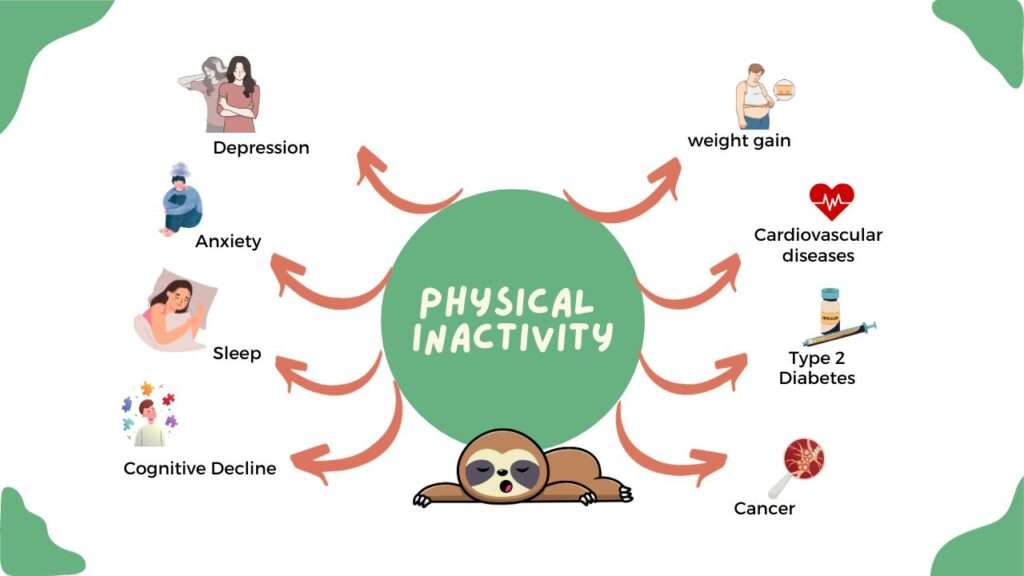In an era dominated by social media, virtual connections, and fast-paced lifestyles, the relationship between the young generation and fitness is more of a situationship. The hustler routine and Netflix have made many people “couch potatoes”. and ghosting physical activity comes with a wide variety of health concerns.
For me, It all began when life kicked me in the form of kidney stones, and I remember that pain. I was in college at that time preparing for a test, scheduled in the next 2 hours, The disaster started with a pinch of uneasiness in my stomach, but I ignored that.
At first, I thought the pain was due to gas. so, I studied and gave the test. By evening it was so intense, I really couldn’t explain. It’s sort of like someone has replaced your lower back with a jackhammer and set it to “maximum destruction”. All the tests and everything happened, the doctor gave me some medications and told me to drink more water and exercise.
After that, I started my fitness journey and yeah, I can say I am a completely changed person now.
The Consequences of Ghosting Your Health:
Yeah, it creates a BIG-BIG difference, from becoming a lazy lump of flesh to a decline in your metabolism. You feel constipated and lack energy all the time. Let’s delve into and unveil the chilling truth about how neglecting our bodies can cast a long shadow on our well-being.

- Health Risks: One of the most significant drawbacks of ghosting physical fitness is the increased risk of various health issues. Regular exercise is crucial in maintaining overall health by keeping the cardiovascular system robust, supporting healthy weight management, and improving immune function. Moreover, Sedentary lifestyles are linked to conditions such as:
- Obesity,
- Heart disease,
- Diabetes and high blood pressure.
- Mental Health Impact: Physical activity is closely intertwined with mental well-being. Regular exercise releases endorphins, the body’s natural mood enhancers, reducing stress and anxiety levels. Ghosting your physical fitness routine can lead to an imbalance in neurotransmitters, potentially contributing to feelings of lethargy, low mood, and increased stress.
“Our body generates energy, if we do not engage physically, we end up getting that energy becomes trapped in our body, leading to mental health issues .”
- Loss of Muscle Mass and Strength: Muscles require consistent stimulation to maintain strength and mass. When physical activity is neglected, muscles begin to atrophy, leading to decreased strength and tone. This loss of muscle mass can contribute to a decline in overall physical functionality and increase the risk of injuries.
- Impact on Metabolism: Regular physical activity is essential for a healthy metabolism. Ghosting your physical fitness routine may result in a slowdown of metabolic processes, making it more challenging to maintain a healthy weight. A sluggish metabolism can also contribute to feelings of fatigue and a lack of energy.
- Decreased Bone Density: Weight-bearing exercises, such as running and resistance training, contribute to the maintenance of bone density. When physical activity is neglected, especially as Individuals age, there is a higher risk of decreased bone density and an increased susceptibility to fractures and osteoporosis.
- Sleep Disturbances: Engaging in regular physical activity is linked to improved sleep quality. Ghosting your physical fitness routine may disrupt sleep patterns, leading to difficulties falling asleep or staying asleep. Poor sleep can further exacerbate feelings of fatigue and negatively impact overall well-being.
Beyond the Body:
- Reduced Productivity: Inactivity can zap your energy levels and focus, making it harder to be productive at work or school.
- Lower Quality of Life: Inactivity can limit your mobility and participation in activities you enjoy, leading to a lower quality of life overall.
Elephants in the room.
It’s true that many people, especially officegoers and hustlers, struggle to prioritize their physical health. While the reasons are complex and varied, here are some of the most common ones:
- Awareness: First of all people are unaware of health and don’t want to know about the causes of their migraine, Slip discs or any other issue that their body is facing. whenever some part of the body aches. they prefer to take a medicine or two to get relief from that pain. moreover, they prefer joining a gym membership when a doctor advises them. They simply are unaware of their health
- Time crunch: Juggling academics, career aspirations, and the ever-present social juggle leaves little room for anything else. The young generation feels squeezed, and carving out even an hour for fitness feels like a luxury many can’t afford. While some people do want to eat healthy food, because of the time constraints and lack of availability, they end up eating junk.
- Keep your tastebuds in control: Consumption of junk food makes us more lazy and induces lethargy. which in turn resist for physical activity. ****Mouthwatering close-ups, vibrant colours, and perfect textures make viewers practically taste the food. Sizzling sounds and upbeat music add to the sensory overload. Words like “creamy,” “gooey,” and “melt-in-your-mouth” just get you. Often these ads are made to represent happy times.
Let me show you some data:
- Estimates suggest 36.5% of adults in the U.S. consume fast food on any given day. This translates to roughly 93 million people.
- Worldwide, 11.2 million metric tons of processed food are consumed annually, indicating widespread consumption.
One of the main factors that needs to be highlighted here is that “the process of gaining weight is slow, People often don’t realise that they are getting fattier and fattier day by day.”
The Solution:
No one is asking you to join a gym membership or fitness routine right away.
For the solution of any problem. one needs to identify and write down the problem first. So, grab a pen and paper. Observe your lifestyle and ask yourself these questions mentioned below.
By the end of the questionnaire, you should have data and how you can tweak it to make your life a little better.
Let’s begin.
- At what time do I go to bed, and at what time do I wake up?
- What is the first thing I do when I wake up?
- What is the first meal I grab, is the meal healthy?
- How many steps do I walk in a day?
- How much water do I drink?
- Am I feeling low?
- How much sugar do I take in the whole day? include every sweet thing you eat.
- Do I feel flexible enough?
- Do I fall sick often?
- How many drinks and cigarettes do I smoke every day?
Let’s focus on small, doable steps that add up to big results:
1. Move your body in ways you enjoy! Take a brisk walk outside, dance to your favourite playlist, or you can join a fun group fitness class. Focus on having fun, not feeling the burn.
2. Make Movement Miniscule: Think you need more time for exercise? check your screen time first, try to cut different portions of your time and make it for your health routine. Take the stairs, park the car further away, or do 10 squats while brushing your teeth. These tiny bursts of activity add up, and every step counts.
3. Do this if you can!: Ditch the car or bike and walk to the store, library, or even work (if it’s close!). These everyday journeys become mini-adventures, getting your body moving and adding spice to your routine.
4. Educate yourself: No fancy equipment is needed! Use your own weight for strength-building exercises like lunges, squats, push-ups (modified versions are great!), and planks. There are tons of online resources for beginner-friendly bodyweight routines.
5. Unleash Your Inner Dancer: Crank up the tunes and let loose! Dancing isn’t just for professional athletes. Shake your body, twirl around, and feel the endorphins flow. It’s a fun way to move and burn calories.
6. Find Your Fitness Buddies: Join a walking group, local sports team, or online fitness community. Surrounding yourself with like-minded people keeps you accountable, and motivated, and makes exercise a social blast.
7. Track Your Wins, Big and Small: Keep a simple log of your daily movement, even if it’s just a 10-minute walk. Seeing your progress, no matter how small fuels your drive and reinforces the positive impact of your new active lifestyle.
We’ve exposed the chilling truth about ghosting our health. But the power lies not in the shadows, but in the choices we make every day. Can we change the fast-paced narrative? Can we prioritize well-being amidst the hustle? These questions deserve not just answers, but action.
Let’s spark a dialogue, challenge the status quo, and rewrite the definition of health for ourselves and the generations to come. It’s time to stop ghosting our bodies and start living life to the fullest, one mindful movement at a time.



Pingback: Feeling Exhausted? : 5 Reasons Why You're Always Tired. - Thriving Studio